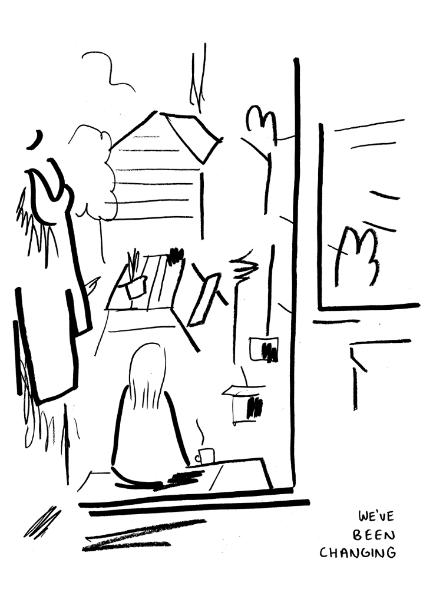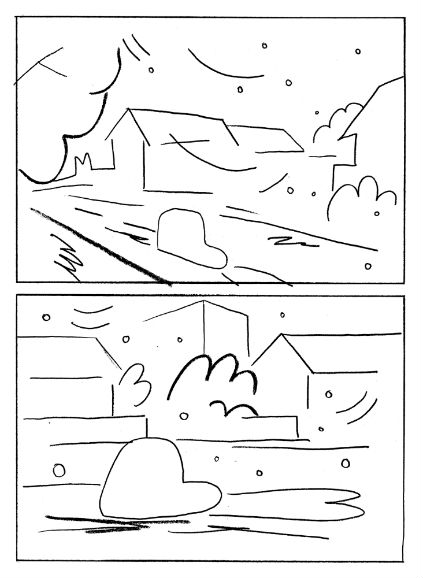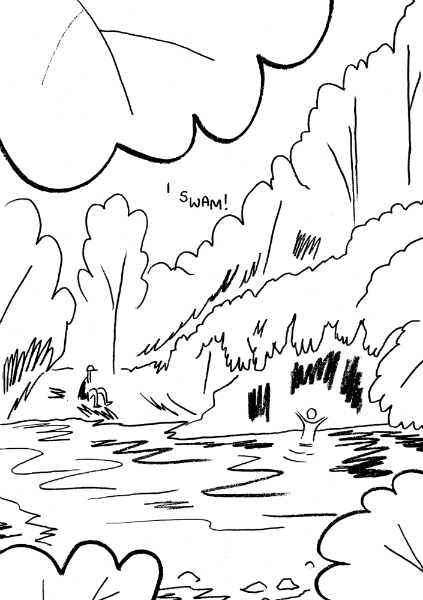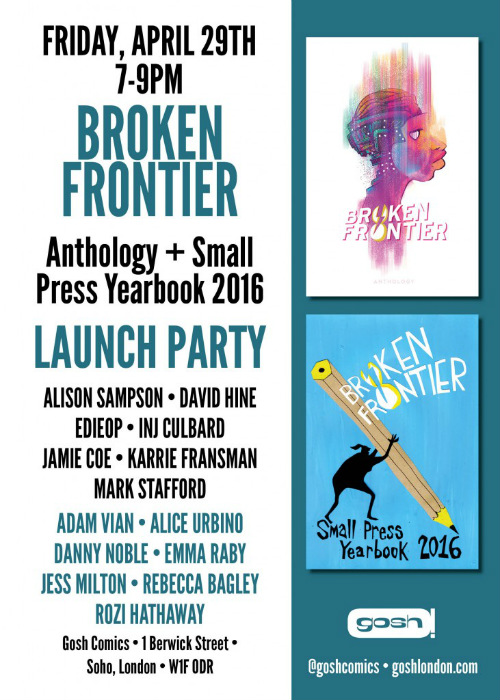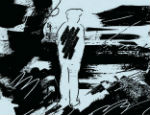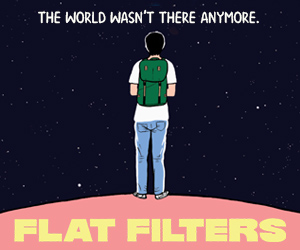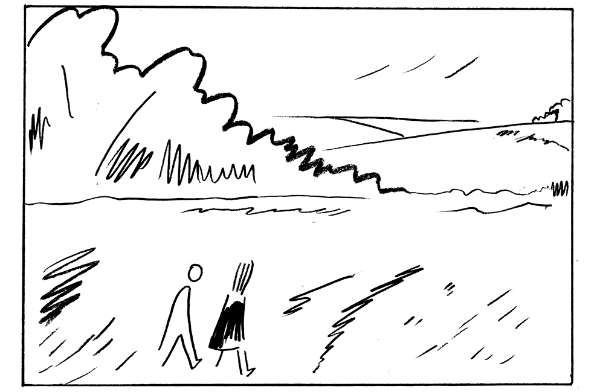
Back in the early days of this column, when I originally wrote about Simon Moreton‘s Smoo Comics, there was no question in my mind that I was shining a spotlight on a unique and vital new voice in comics. Moreton’s work immediately spoke to me in ways that few creators had managed before or have managed since; the powerfully expressive minimalism of his pages serving to underline the profound nature of their empathetic and often strangely familiar narratives.
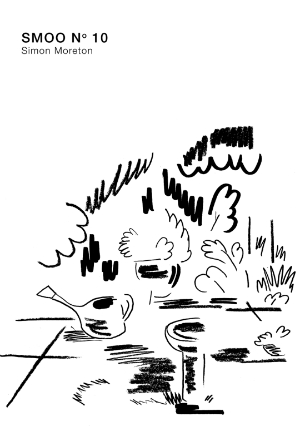 Looking back on that first Smoo review it’s interesting to note that I described it as “material that should be experienced rather than analysed; work you should simply immerse yourself in rather than spend time breaking down and dissecting.” A counter-intuitive proclamation for a comics commentator, perhaps, and one that I’ve obviously spent the last four years totally ignoring…
Looking back on that first Smoo review it’s interesting to note that I described it as “material that should be experienced rather than analysed; work you should simply immerse yourself in rather than spend time breaking down and dissecting.” A counter-intuitive proclamation for a comics commentator, perhaps, and one that I’ve obviously spent the last four years totally ignoring…
Smoo has featured in every one of my annual ‘Ten UK Small Press Comics You Need to Own!’ columns since then (with the exception of the one year it wasn’t published). And when Avery Hill Publishing, those ever excellent purveyors of all things indie, collected earlier issues as the softcover Days a couple of years back I similarly noted that “these aren’t comics you’ll simply feel a connection with. These are comics you’ll feel you’ve lived.”
So it was hard not to feel at least a tinge of sadness when Moreton announced that Smoo Comics #10 would be the last issue of this long-running, vitally important and hugely influential series. In many respects, though, this tenth issue feels less of an ending and more like a transitional stage. A metamorphosis that tentatively began in issue #9 as Moreton’s continuing experimentation with prose and poetry seems designed to gently lead us into his new project Minor Leagues.
Smoo #10 focuses on a year of Moreton’s life in scattered, snapshot glimpses that merge into each other; tiny fragments of everyday experience coalescing into a vague thematic whole. There’s an overarching narrative here that is both fractured and yet flowing in construction; small, personal stories that are nevertheless replete with worlds of possibility and meaning.
The first offering in #10 is a combination of prose and single images that reflects on the passage of time, moving on, and the abrupt chapter breaks that punctuate the narrative of our lives. It’s raw but sanguine, wistful yet accepting; words and illustration perfectly complementing one another as single images serve to embody entire periods of time in the creator’s personal history.
Perhaps the most memorable sequence in the entire issue is one that Moreton is involved in only as observer. It consists of four pages and just eight panels recording a gradual gathering of finches, and yet it’s a beautifully evocative example of that much touted sense of reading between the panels and of comics’ peculiar relationship with the passage of time. This is Moreton’s minimalism at its most eloquent as his initially subdued visuals suddenly explode into a representational frenzy of this avian gathering and its interaction with its environment.
As with #9, text pieces are interspersed with sequential art. While this may still seem a dramatic presentational change to longer-term readers it actually emphasises one of the core elements of Smoo over the years – Moreton’s subtle and genuine connection with his readers as he mirrors aspects of their own lives and personal histories.
Take this initial piece of prose on the first interior page as an example:
“There’s a moment, before I go upstairs and undress, before I climb into bed beside you and you murmur ‘hello’, there’s a moment when I become aware that now that I have found you, I am terrified of the end of the world.”
The potential fragility of the things we value the most in life. Fears we have all experienced and embraced. These few short lines require no florid over-elaboration to establish a deep bond of understanding between writer and audience, the emotional resonance of Moreton’s prose proving equal to that of his affecting imagery.
Smoo #10 asks the reader to take their own meaning from its pages perhaps more than any preceding issue. There’s something quite joyful in that exercise in the short (above) that deals with a visit to the Californian countryside; the splendour of nature in its expansive glory counterpointed by the relative insignificance of the two characters that move through its environs, both of whom are gradually replaced as our focal point of reference, as perspective is delicately shifted on our behalves. Similarly, a hazily atmospheric Spring time visit to a waterfall invites us to place ourselves in its protagonists’ places as they become not so much characters to invest in but more on-page proxies to live these events through.
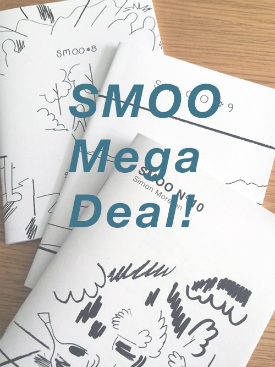 It seems only fitting that Smoo concludes with a poignant and beautifully paced final few pages of comics that seem to emphasise that potential change and unpredictability are the only true constants in life. That’s been a staple of Moreton’s work on this series of zines and one that I feel sure will be touched on by him again in the future.
It seems only fitting that Smoo concludes with a poignant and beautifully paced final few pages of comics that seem to emphasise that potential change and unpredictability are the only true constants in life. That’s been a staple of Moreton’s work on this series of zines and one that I feel sure will be touched on by him again in the future.
Simon Moreton’s ruminations on life, memory, environment and identity in the pages of Smoo have been so much more than just autobiography over the years. They’ve been a pool of shared experience, an emotional meeting point, and a haunting reminder of the commonality of the human condition.
Smoo may be gone but the next chapter is beckoning for this remarkable presence in UK self-publishing…
For more on the work of Simon Moreton visit his site here and his online store here where you can buy Smoo #10 for £3.00 here or a special bundle of Smoo #8-10 for just £5.00 here.
You can also follow him on Twitter here.
Simon Moreton provides the foreword to the Broken Frontier Small Press Yearbook available for pre-order here priced £6.00 plus postage. The Yearbook launches at London’s Gosh! Comics on April 29th. Full details here.
For regular updates on all things small press follow Andy Oliver on Twitter here.





